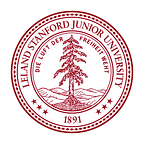I’ll Tip My Hat to a New Chilean Constitution
By Daniel Gajardo
This article was originally published on SIPR Forum’s website.
On October 25th, Chileans overwhelmingly decided to rewrite their constitution. In spite of the current COVID-19 pandemic, the referendum was marked by a historic record-high voter turnout in absolute terms, with nearly 7.6 million Chileans going to the polls. The “Approve” option received 78% of the votes, favoring the start of a process to reconstruct the country’s Magna Carta. In a world where political polarization has become mainstream, the results signal a hopeful indication of unity in the Chilean people when it comes to demanding change and putting an end to long-standing legacies of Augusto Pinochet’s military dictatorship. Now, Chileans begin a democratic process that will define the country’s socio-economic model and put the nation’s political elite to a test of representativity and legitimacy. At this moment, the referendum is a victory for the Chilean people and for democracy, initiating what will hopefully be a constructive process of dialogue. Most importantly, it shows that in spite of isolated events of violence, social movements can be funneled through institutional processes and succeed.
The referendum occurred almost a year after a $30 pesos increase in the subway fare (approximately $0.04 USD) tipped an unstable Chilean social equilibrium into unrest. For months, people chanted “Chile Woke Up” and demanded equal opportunities, dignity, and improvement in broad social issues such as healthcare, pensions, and gender equality, only to be calmed by announcements of the constitutional process and the coronavirus pandemic. In spite of events of violence both from protesters and police, the mostly peaceful movement was able to generate nationwide debate and elicit response from political authorities.
This reconstruction could result in a definite departure from the previous constitution, approved in 1980 and widely regarded as one Pinochet’s major heritages. It is worth noting that many attribute the success of the country to this document, which served as the foundational stone for Chile’s economic development. However, with a strong bias towards liberalism and privatization, it is no surprise that behind positive average development trends there are still unachieved promises of meritocracy and social justice, with Chile having one of the highest income inequality levels among OECD countries. Even when some argue that there are not many specific social policies that can be addressed in the constitution, or that reforming instead of rewriting would be better in terms of respecting institutions and avoiding abrupt change, the clear results of the referendum serve as evidence of how important it is that these institutions generate a sense of belonging for them to function properly.
Now comes a process of democratically deciding what the content of the new document will be, giving the country its first opportunity to have an open dialogue regarding what the pillars of Chilean society should be in the years to come. The new constitution will be written by a “Constitutional Convention” composed of 155 representatives that will be elected in April 2021, and will have, by law, gender parity and quotas for indigenous groups. The Convention will have 12 months to deliberate and submit a proposal for a ratification referendum in 2022, which will ultimately decide if the new document is approved or if the country goes back to the 1980’s constitution. This option was strongly favored relative to the alternative “Mixed Constitutional Convention” which included 50% members of the actual Chilean congress but only got 21% of the vote, showing people’s distrust of current political figures and calling for new leaderships to emerge.
Hopefully, those 155 members of the Constitutional Convention will put the long-term interests of the country first and address citizen’s demand for change — the future stability and longevity of the country depends on it. Members of the Convention will be in the spotlight with the nation observing how the group manages this opportunity. It represents a unique occasion to build a more inclusive socio-economic model, explicitly recognize the importance of the country’s indigenous population, and change the way the country protects its globally recognized natural habitats. On a deeper level, it needs to serve the purpose of reconstructing the Chilean social pact.
Chile undeniably faces challenges as it seeks to move forward. Questions remain about how independent candidates will be included, or what the best way is to engage with Chileans who didn’t vote or are underrepresented. More urgently, current officials still need to address short-term social demands, which are exacerbated by the global pandemic. Despite the obstacles ahead, the fact that Chile was able to conduct a referendum during a pandemic is a victory for democratic values and a further example of how social movements and momentum within civil society can spur changes when existing institutions are either unwilling or unable to do so. I keep my hopes up on how the underlying national consensus on the need for improvement, equality, and justice will keep the process going in the right direction. After all, as The Who sang, “the change, it had to come; we knew it all along.”
Daniel Gajardo is from Santiago, Chile, and is currently pursuing a Master’s in International Policy at Stanford. He graduated from Pontificia Universidad Católica de Chile with a bachelor’s degree in civil engineering and a diploma in hydraulic engineering. Daniel aspires to address environmental problems with an interdisciplinary approach. He has worked as head of consulting in TriCiclos, a Latin American circular economy company, and he co-founded Engineers Without Borders Chile, a nonprofit seeking to improve the quality of life of underserved communities through the application of humanitarian engineering methodologies. He has been recognized with multiple awards, including Best Graduating Student, by Pontificia’s School of Engineering and alumni foundation, and the Chilean Institute of Engineers.
